Last week, the intelligence community came out with a statement that "China prefers that President Trump – whom Beijing sees as unpredictable – does not win reelection.”
It's hard to put much too much stock into this assessment. The Trump White House has shown itself more than capable of getting the intelligence community to shade its judgment, particularly on foreign government's preferences and influence operations. As one reporter put it, the statement on China’s intentions “seemed to be tortured with political calculation — an implicit declaration of anguish rather than of independence.” While it’s impossible to know what the underlying intelligence actually was, it's a useful thought exercise to consider what on the Chinese Communist Party’s behalf may be motivating the Biden preference.
Setting aside debates over the extent of Chinese ambitions to overturn the global order, one can make some broad generalizations about President Xi Jinping's preferences about U.S. leadership. First, CCP regime stability trumps all else. What supports that pursuit is primarily strong economic growth, but the CCP’s grip on power gets a boost from the rally round the flag effect that comes when America is seen to be directly opposing China. Second, Xi sees benefit to China in America losing its ideological luster and weakening its alliances.
With that relatively uncontroversial framework, let’s turn to the economic, ideological, and international political implications of a Biden or Trump White House.
For the Xi administration, a second Trump term would present long-term international opportunities at the price of near-term domestic uncertainty.
Trump in the short term presents major risks that could materially impact near-term growth prospects. A second-term Trump could kick off a hard decoupling that would be painful for China's economy to absorb. A second term will likely see more attrition among the 'Globalist' ranks in the White House, empowering administration officials who thought a 'Fuck China Week' was a good idea. Key players Wray, Barr, Brien and Pompeo all are clearly on board with a maximalist approach to confronting China.
This would clear the way for the return of a protracted trade war. Trump would not personally have to worry about facing voters angry at its economic impacts and facing a Democratic House and possible Senate, fighting trade wars may be the most fun Trump could have in office. He certainly has an instinct to pursue a ‘deal of the century,’ but without advisors pushing him to keep the peace all it takes is one bad mood to blow up a deal. What’s more, Xi is not all of a sudden going to put on the table the sort of structural reforms or massive purchases that will win over skeptics within the Trump administration.
Trade advisor Peter Navarro may very well succeed in convincing the administration to delist all Chinese firms from American stock exchanges. Chinese firms would continue having a hard time accessing American technology. And even if Trump couldn't personally care less about Hong Kong and Xinjiang, his administration would likely continue to add to sanctions list persons and entities involved in repressing both regions.
But zooming out a few years, Trump could do serious damage to America's competitiveness vis-a-vis China. Trump's cronyism makes it impossible to imagine him executing a smart industrial policy needed to challenge China's ambitions in semiconductors or conduct the sort of reform needed to retool the Department of Defense for confrontations in the South China Sea. Xenophobic immigration policies will convince more Chinese talent to return to the mainland.
Trump's willingness to demonize the Chinese people by banning all CCP members and their families from entering the U.S. would help shore up Xi's position domestically. As Tanner Greer writes, "the average man on the Chinese street will not view this as an attack on the Party, but an attack on the Chinese people. How could they think otherwise, when one out of six Chinese is being targeted?"
At least in the near term, Xi has demonstrated he would prefer not to have a confrontational relationship with America. Four more years of Trump runs the risk of locking-in decoupling and having confrontation bubble at a hotter temperature than Beijing finds comfortable.
On the international stage, Pompeo has been pushing the idea of "a new alliance of democracies" to unite against Chinese predations. Yet Trump is uniquely positioned to undermine any such efforts. Remember, much to Pompeo's chagrin, the president tried to invite Putin back into the G7. Calling into question treaty commitments and withdrawing troops from bases occupied since the 1940s, Trump has done more to undermine American alliances than any president since Jefferson. And Trump has fundamentally tarnished the ideal of American democracy and society in the eyes of both Chinese nationals and America's allies. To take only examples from the past few months, a disastrous COVID response and the desire to use the Department of Homeland Security to make Portland look like Hong Kong take previously unimaginable levels off America's sheen. As Trump grows older and more cranky, norm-breaking instincts will likely only grow more pronounced. Xi couldn't ask for a better American president to undermine the U.S. alliance system that is the critical check on Chinese ambitions in Asia.
Trump’s alliance-breaking tendencies are particularly valuable to the CCP when it comes to Taiwan. As Xi clearly has Taiwan in his sights, Trump would seem to be the ideal president on which to try his luck. Aside from sending the occasional senior-level official to Taiwan, Trump's heart just doesn't seem to be in it when it comes to defending the island. Trump famously made an early call in December 2016 with the Taiwanese President but, in retrospect, that seems more like a blip than a presaging a new commitment to the island. As former National Security Adviser John Bolton writes in his book, “one of Trump's favorite comparisons was to point to the tip of one of his Sharpie [marker's] and say, 'this is Taiwan,' then point to [his desk in the Oval Office] and say, 'this is China.' So much for American commitments and obligations to another democratic ally.” In Trump’s mind, he has more important agenda items than the island nation.
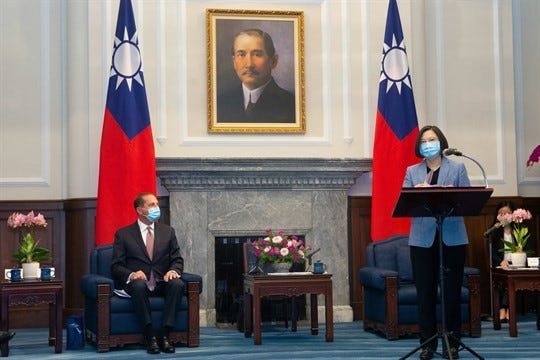
HHS Secretary Azar’s recent trip to Taiwan is a red herring.
Trump will certainly not push Taiwan to cut down on its procurements of pricey American military systems like tanks and stealth fighters that have little utility in an invasion scenario. Taiwan would probably be better off instead investing in less sexy systems like mine-laying ships and surface-to-air missiles. When push comes to shove, as much as his advisors Matthew Pottinger and Randall Schriver may value Taiwan's democracy, Trump has a track record of abandoning small yet worthy allies. Soleimani assassination excepted, Trump has shied away from direct military conflict with the likes of North Korea and Iran, and would likely prove even more gunshy when faced with a true peer competitor in the PLA.
And Biden?
On the trade war, Biden has gone back and forth on whether he would keep tariffs in place, but will certainly be less unilaterally aggressive. Biden would pursue more coordinated actions on trade, perhaps by joining TPP11, a trade deal born from the ashes of the TPP that Trump killed, and working with allies to pressure China on forced tech transfer and intellectual property violations. In the short term, however, Biden is less likely to move suddenly and break things, and in turn would be better in the near term for the Chinese economy than Trump.
Biden would almost certainly change Trump's immigration policies, making the U.S. a more attractive country for Chinese tech talent. Biden wouldn't ban CCP party members from entering America, and his rhetoric around China would not reach the overheated heights of achieved by Pompeo. This change in tenor would likely mean that Xi forfeits some of that rally round the flag effect.
Further, [and here I admit my political leanings are probably most coming into play in my analysis] Biden has the chance to do the sort of investing at home that would make America a more formidable Chinese adversary in the long term. Instead of Trump's 'Infrastructure Week' that will probably never come, Biden supported by Republicans scared enough of China to work across the aisle, could conceivably put real dollars behind making investments in research, education and the U.S. industrial base. And at the very least, he will stop doing things that sow domestic division and harm the global appeal of the American idea.
On international politics, Biden seems far more formidable than Trump. His Asia advisors have advocated in unison for presenting a united global front to face Chinese aggression, turning the 'latent alliance' that Xi's actions have provoked into a real one. On Taiwan, Biden has heaped praise on their "thriving democracy" and is unlikely to abandon forty years of policy committing the U.S. to the island's defense. Biden could also start to use human rights issues as a cudgel in a way Trump never credibly could, first by respecting civil rights at home and taking steps to bring oppression in Xinjiang to the forefront of global issues.
To sum up, a second Trump administration would provide more near-term economic risk and potentially solidify a cold war-type atmosphere. At the same time, second-term Trump would undermine America's global standing and likely waste our opportunity to lead the world in standing up to Chinese aggression. Biden would improve America as an ideological and economic competitor while bringing allies together to confront China. But he’s also less likely to run relations with Beijing off a cliff.
So, if the intelligence is correct, what does Xi's preference for Biden say about how he thinks about his own regime and leadership? Supporting Trump would be a more confident choice, showing that Xi is willing to eat short-term economic pain in order to face a weakened America and more malleable international order. It also could imply that invading Taiwan isn't the first thing on his mind.
If Xi in truth does support Biden, that would point to the fundamental insecurity of Xi's China.
It may show that Beijing then is worried enough about its near term domestic position to pass up a second term of a president that has been uniquely harmful to America's role in the world. Perhaps Xi thinks that China needs a few more years of relative access to western technology and capital to fully be able to stand on its own. Maybe he thinks he can lure Biden into a 'restart,' extending out the timeline of confrontation even further or even avoiding it entirely. Or perhaps he is confident about the global weight China can continue to throw around, surmising that the sort of multilateral pressure Biden could bring to bear on China wouldn't amount to all that much. Whatever the truth, indications that China is not trying to aggressively intervene in the presidential election likely suggest that this is a close call.
This article first appeared on Lawfare. Thanks to Rob Williams and Jacob Schulz for edits.
China Twitter Tweets of the Week

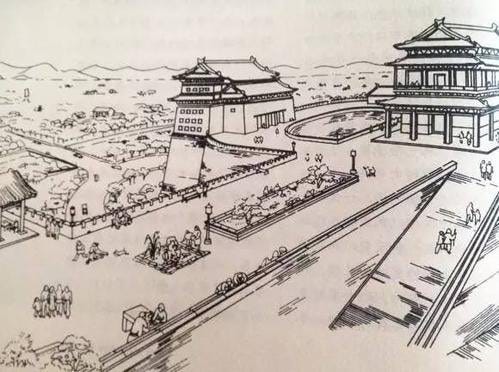

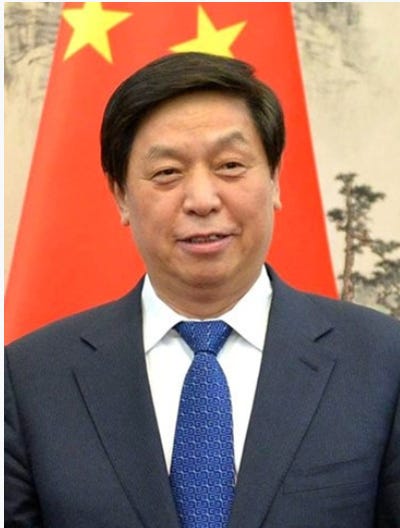
Mike and the rest of the nyt crew are the real MVPs.
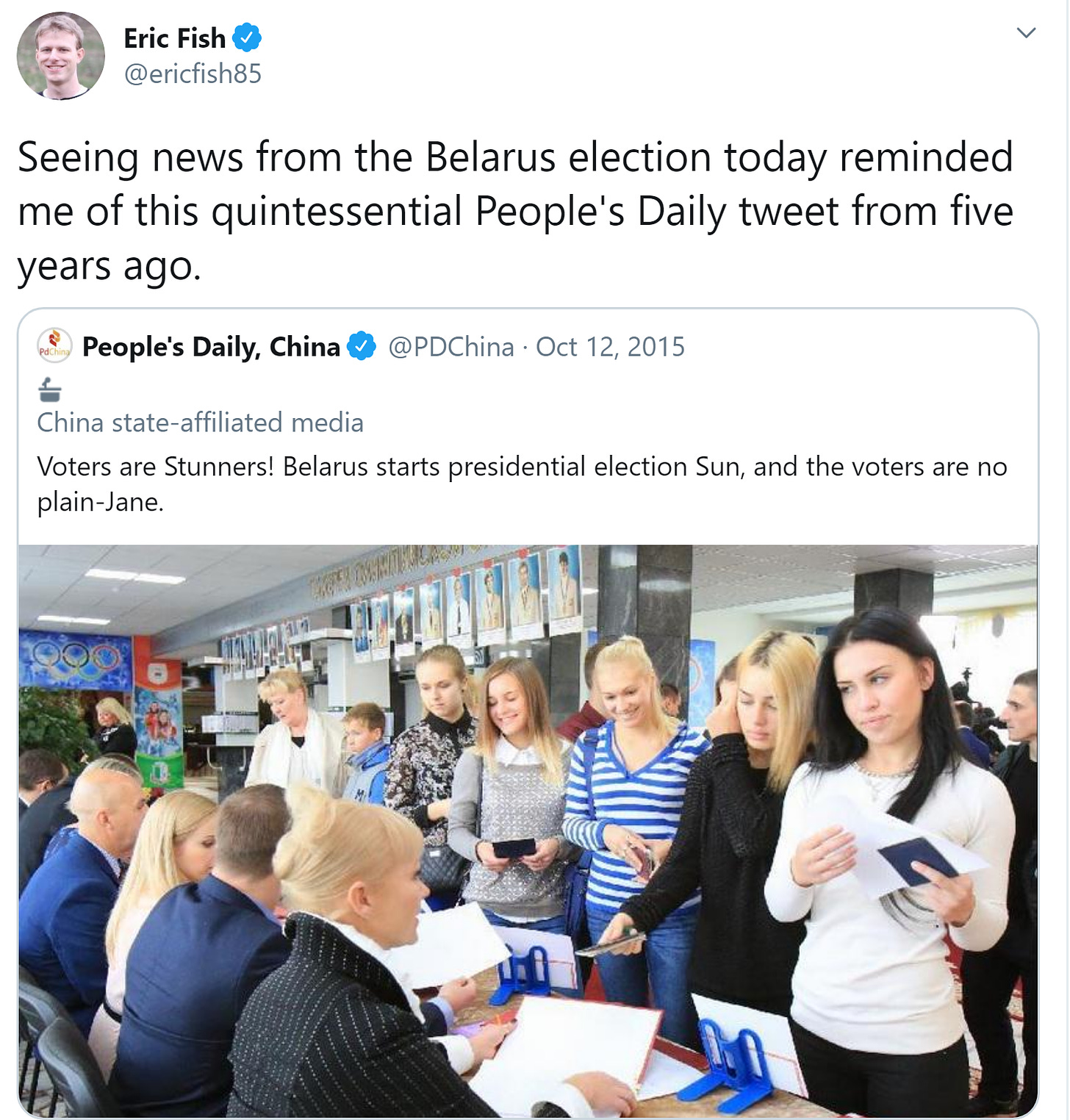
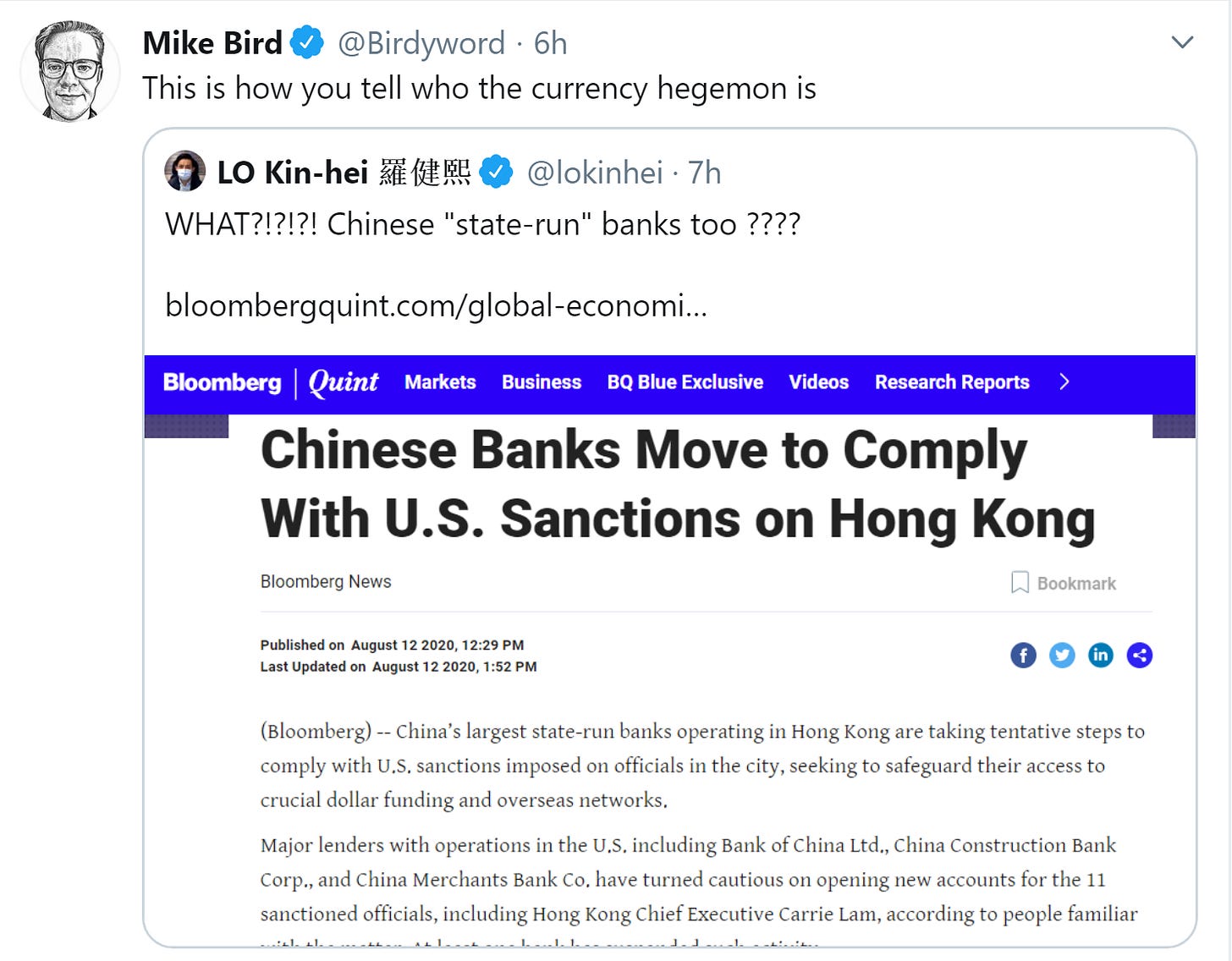

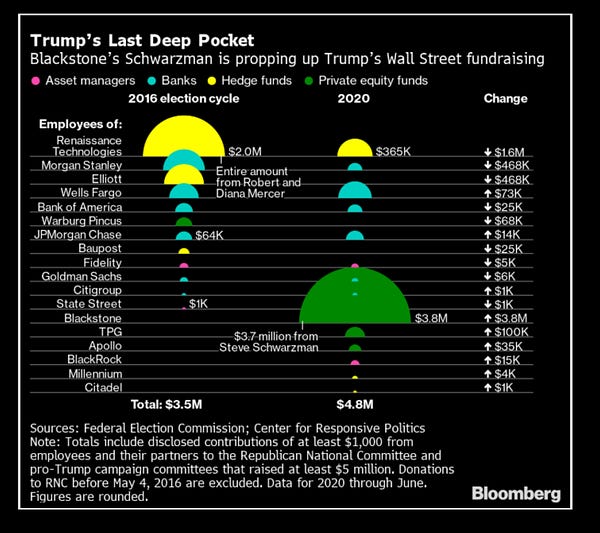
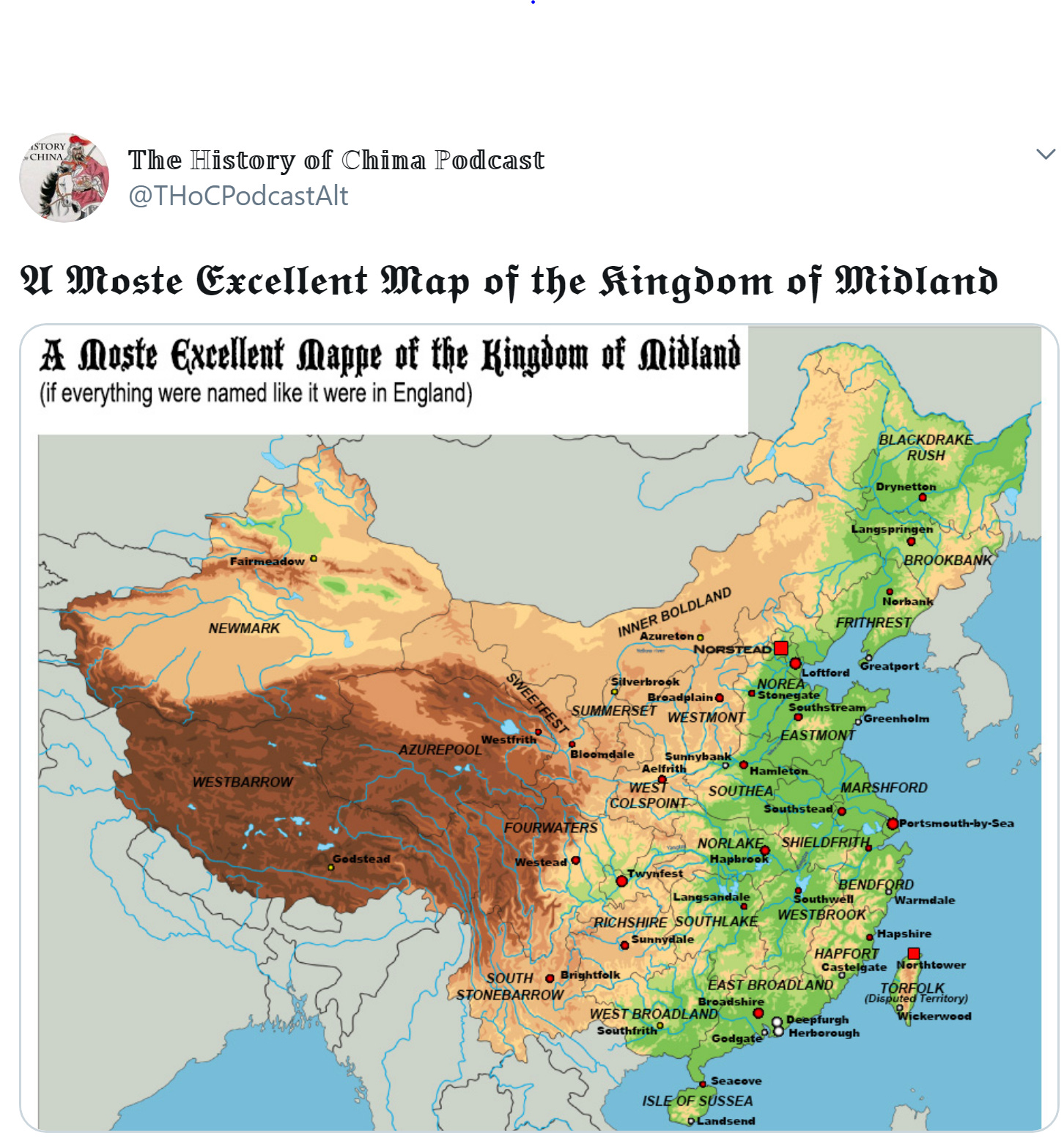





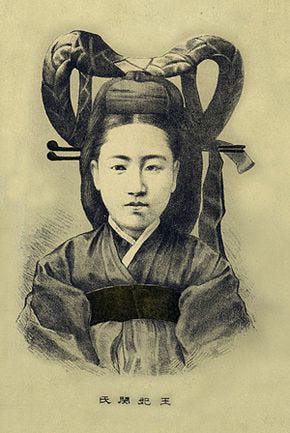



Love your work. Not your best piece. The comparison between a Trump or Biden administration was quite superficial, and you were decidedly uncritical towards Biden. I'd be interested to know why you prefer a Biden administration, however a Biden/Harris administration is too flawed for anyone to convincingly argue for it without addressing the serious concerns that come with it, even contrasted with a second-term Trump/Pence administration. Thankful for your content.
Thanks for the piece Jordan. I firmly believe that Biden would be far more damaging to Xi than a second Trump administration and I think its quite clear if you take an internationalist rather than a bilateral approach. Simplifying in this brief comment, but for every bit of 'damage' that Trump inflicts on China he inflicts more than that unit on the USA and its standing. This creates space for China to fill (even if a marginally weakened China as a result of tiffs with USA). A Biden presidency might be smoother sailing in the short-term but would keep or rebuild US credibility and remove the space for China to fill, that's before we move onto the role of effective alliances. Either way, we are debating your article in the YCA slack if you want to check it out.